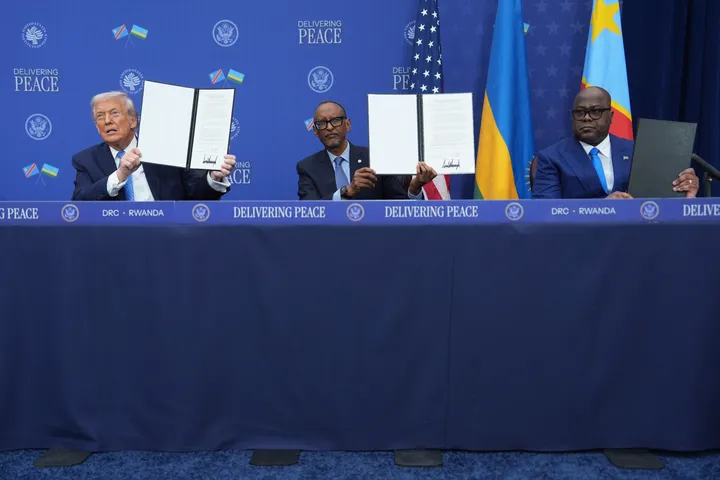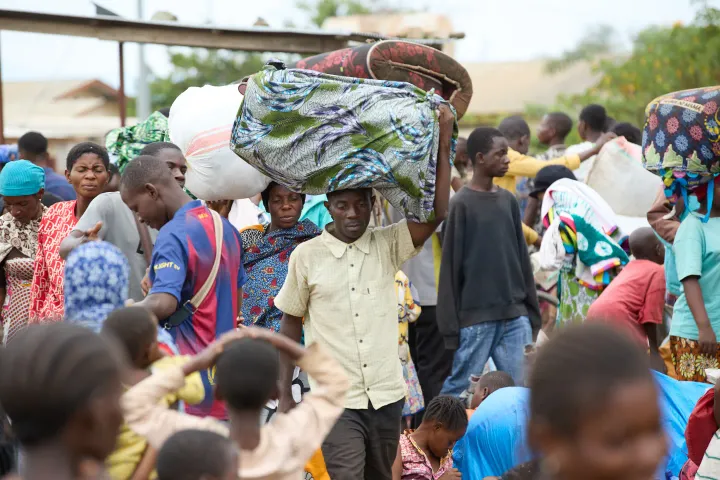By Dayo Yussuf
The Kenyan coat of arms, with its two spear-wielding lions on either side of a traditional black, red, and green shield featuring a rooster holding an axe, is a fascinating canvas of symbolism.
What might escape attention in this melange of meaning is the scroll at the bottom bearing the word "Harambee", or "all for one" in Swahili.
Harambee isn't just a word. It represents a Kenyan tradition that has held this East African nation together in many ways.
The concept of Harambee has its origins in the age-old system of community living, where the norm is to prioritise the group's needs over individual requirements.
This unwritten code of generosity and collective responsibility binds Kenyan society to this day, regardless of class, ethnicity, gender, or religious background. In the modern context, Harambee is akin to crowdfunding — just that its scope extends beyond money.
After Kenya gained freedom from the British colonial regime in 1963, Harambee was used by the newly independent nation's leadership as a rallying cry for the people to unite in building their country from scratch.
Jomo Kenyatta, who spearheaded this transition as Kenya's first President, was convinced that the spirit of Harambee could help create an unbreakable framework for the country's economic and social transformation.
Social ownership
This call to collective action has endured, be it community funding of projects such as hospitals, roads and public grounds or raising money for individuals requiring help to clear a hefty hospital bill or send a child to school.
"Since independence, the essence of Harambee has been to help the nation get rid of three particular enemies of development — poverty, disease and illiteracy," says Prof Kennedy Ongaro, a sociologist and lecturer at Nairobi's Daystar University.
Citizens who have been part of the journey since independence note how the country has benefited from the inherent philosophy of collective responsibility enshrined in the Kenyan ethos.
"I have personally experienced the impact of Harambee. My primary school was built through Harambee fundraising. I was sent to study at a university abroad using the same method," says Prof Ongaro.
System under attack
One of the demands that emerged during the Gen Z agitation against the Kenya Finance Bill was to ban all public fundraising by government officials and leaders.
The protesters argued that these events, in the name of Harambee, had become a channel for corrupt leaders to launder ill-gotten money.
President William Ruto said on national television soon after that, had taken cognisance of the clamour for fundamental changes in the management of public funds. As part of the proposed changes, he said his administration would ban public fundraisers, especially those involving people in government.
Prof Ongaro believes it would be an injustice to Kenyan society to allow a noble concept like Harambee to be hijacked.
"Politicians and influential people in society walk around with briefcases full of money and make millions of shillings in contributions at fundraisers across the country. But they cannot explain how or where they got the money," he says.
Rich people who leverage their contributions for personal gain have also eroded public faith in philanthropy.
Frustration over how fundraisers are misused came to the fore during the agitation, which prompted President Ruto to sack almost his entire cabinet. He has since partially reconstituted the cabinet, retaining a few old faces.
"Gen Z has seen through institutions that allow their platforms to be used by politicians to hide stolen money under the guise of donations," Prof Ongaro tells TRT Afrika.
He highlights the lack of structure and policies governing Harambee practices as part of the problem.
"Since there is no clear accountability framework, it allows people to do anything in the name of Harambee. This lack of transparency makes people uncomfortable about the spirit of the exercise," says the academician.
➤ Click here to follow our WhatsApp channel for more stories.
























